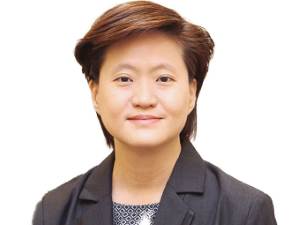Singapore FDI keen to expand
 |
How important is Vietnam’s market to Singaporean investors, particularly after the establishment of the ASEAN Economic Community (AEC) more than one and a half years ago? Do you see any signs of notable new Singaporean investments into Vietnam’s property, manufacturing, and processing sectors in the time to come?
Vietnam is one of the key markets of interest in Southeast Asia for Singaporean companies. Singapore is currently the third-largest foreign investor in Vietnam, with registered cumulative investments of $41.6 billion in 1,894 projects. Singapore is also Vietnam’s top investor among ASEAN countries, accounting for about 60 per cent of ASEAN’s total foreign direct investment (FDI) into Vietnam.
Singaporean companies tend to take a long-term approach when investing in Vietnam and have continued to explore business opportunities across a variety of sectors. In recent years, Singaporean investors in Vietnam have also diversified from a traditional focus on Ho Chi Minh City and Hanoi into other regions such as the Mekong Delta region, Danang in central Vietnam, and Haiphong in the north.
Manufacturing continues to be a very viable sector in Vietnam, especially after the establishment of AEC. Vietnam has successfully established itself as an attractive manufacturing location and has become Asia’s new manufacturing hub.
With a young and skilled labour force and abundant natural resources, Vietnam remains an attractive market for Singaporean manufacturing players in the apparel, consumer electronics, and food sectors.
Vietnam’s rapid urbanisation also provides opportunities in urban development and management, especially in the construction, energy, and utilities sectors. These are areas where Singaporean companies have strong capabilities and experience in. They can customise solutions to meet Vietnam’s rising needs, especially in the areas of water treatment, alternative energy, and urban planning.
Singapore has a vibrant ecosystem of water companies that spans the entire value chain including water treatment, equipment OEMs, and project development. Thus, Singaporean companies are keen to co-operate with Vietnam in the water sector, such as water treatment facilities in sanitation projects to provide drinkable water to municipalities, as well as water supply for industrial applications.
With the growing middle class in Vietnam generating greater demand for modern services, Singaporean businesses seem keen to expand into newer areas such as banking, healthcare, and telecommunications. Could you explain why?
Beyond manufacturing and urban solutions, Vietnam’s over-90-million population with a fast growing middle class presents opportunities in the consumer sectors. Vietnam’s growing consumer sophistication and receptiveness towards foreign brands have attracted Singaporean investments from sectors including food and beverage, retail, and banking. Singaporean businesses believe that these sectors are strong growth drivers for Vietnam and are keen to contribute to the development of these sectors.
Another trend we have observed is the fast growing tech startup community in Vietnam, which has attracted a wave of foreign investors such as venture capital funds and co-working space providers to come and shape the ecosystem. Besides setting up their tech bases in Vietnam, there are also untapped opportunities in e-services and e-fulfilment for Singaporean investors.
In a bid to attract more investment capital, the Vietnamese government has been boosting its efforts to equitise state-owned enterprises (SOEs). What merger-and-acquisition (M&A) opportunities do you think will catch the eyes of Singaporean investors?
Vietnam has continued its push to reform and equitise SOEs, opening up certain sectors that have been traditionally limited to SOEs to competition. This has attracted attention from international investors.
Singaporean companies are looking at M&A and strategic investments as viable entry modes into the Vietnamese market. Consumer-related sectors, such as food, retail, telecommunications, healthcare, and education, which tap into the rising urban income, are expected to appeal to foreign investors, including those from Singapore.
What the stars mean:
★ Poor ★ ★ Promising ★★★ Good ★★★★ Very good ★★★★★ Exceptional
Latest News
More News
- Ho Chi Minh City hits $8.37 billion in FDI (December 29, 2025 | 08:28)
- Tax sector wraps up 2025 and sets priorities for next year (December 25, 2025 | 14:00)
- Heavy industries set for pilot greenhouse gas quotas (December 25, 2025 | 10:00)
- $250 million deal targets women-owned SMEs, sustainable agriculture (December 22, 2025 | 17:40)
- UOB sees Vietnam growth easing in fourth quarter (December 22, 2025 | 17:39)
- Government moves to establish International Financial Centre (December 21, 2025 | 21:00)
- Vietnam's IFC to target global investment flows (December 21, 2025 | 18:00)
- Ha Tinh breaks ground on major Vingroup industrial and energy projects (December 19, 2025 | 18:24)
- EVN launches major power infrastructure projects nationwide (December 19, 2025 | 18:17)
- VAL inaugurates second production line to meet domestic animal feed demand (December 19, 2025 | 16:37)

















 Mobile Version
Mobile Version